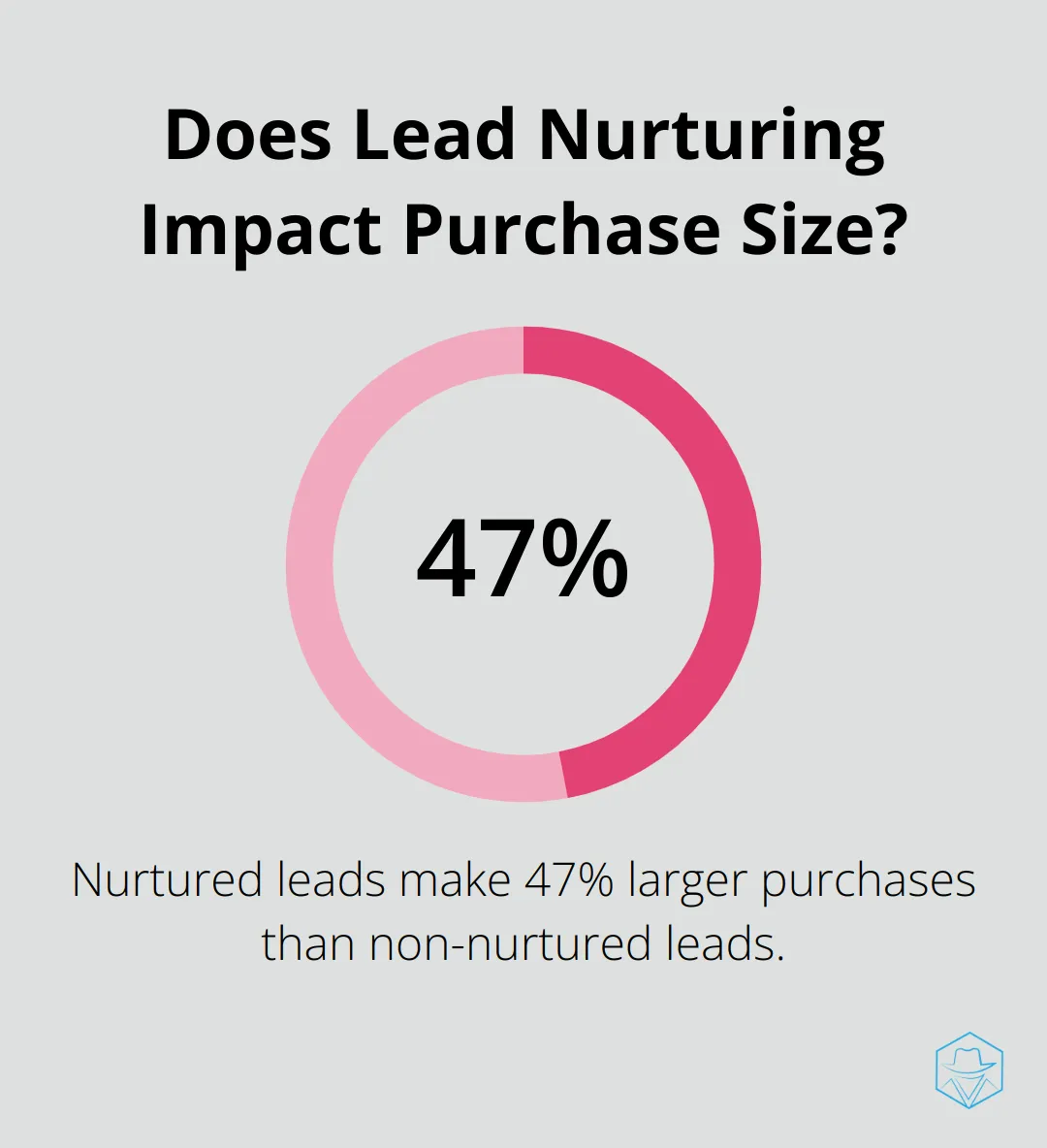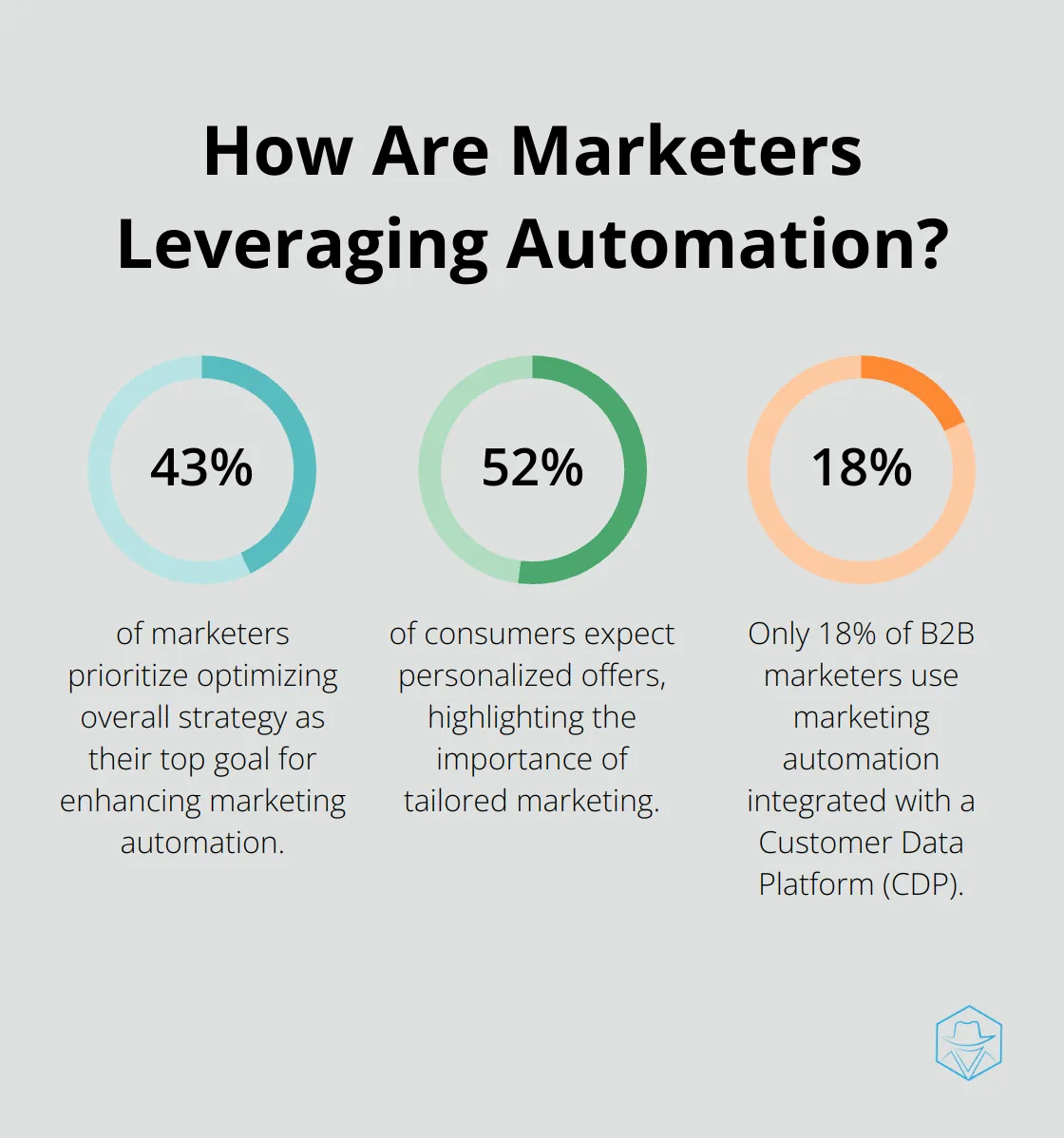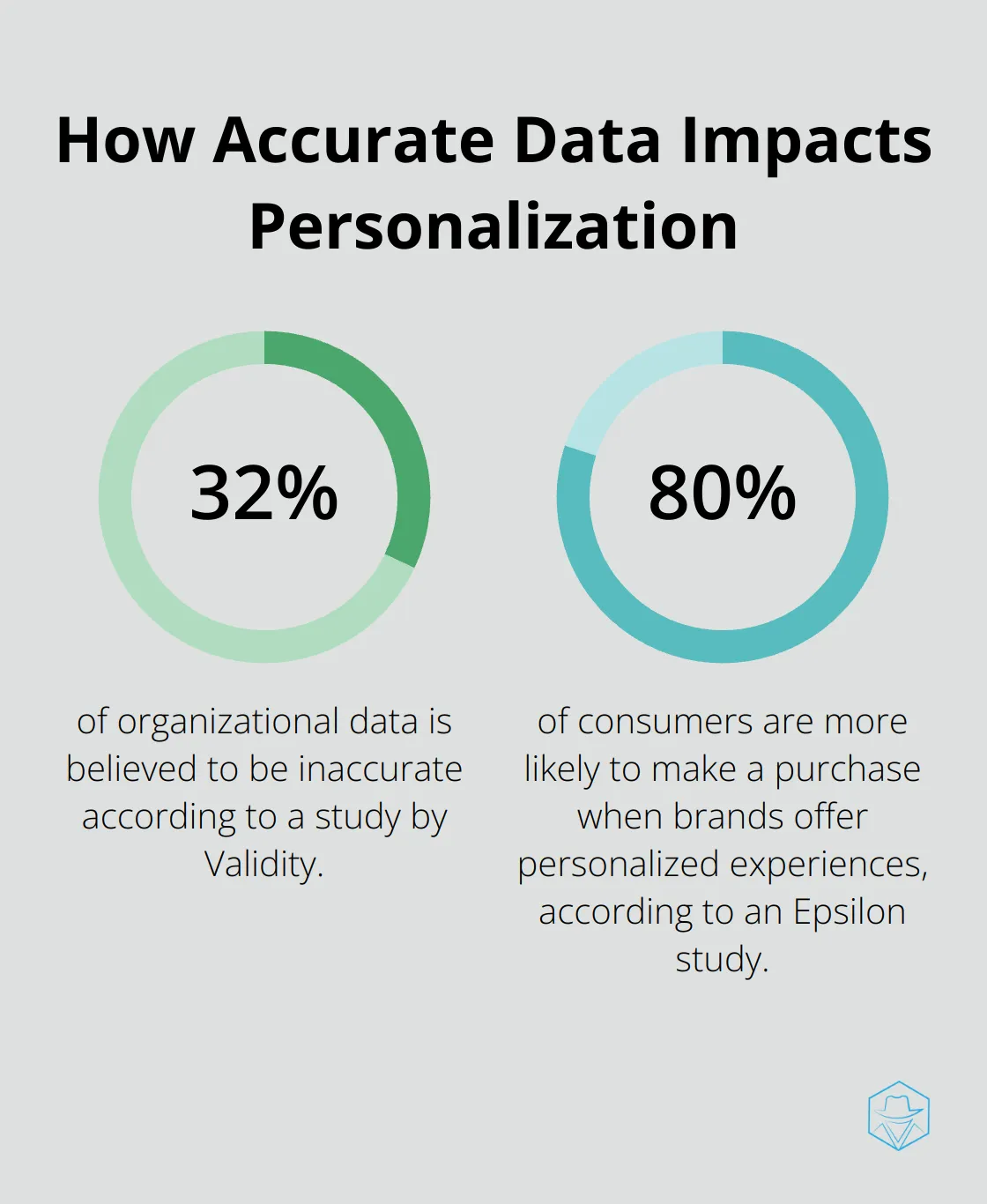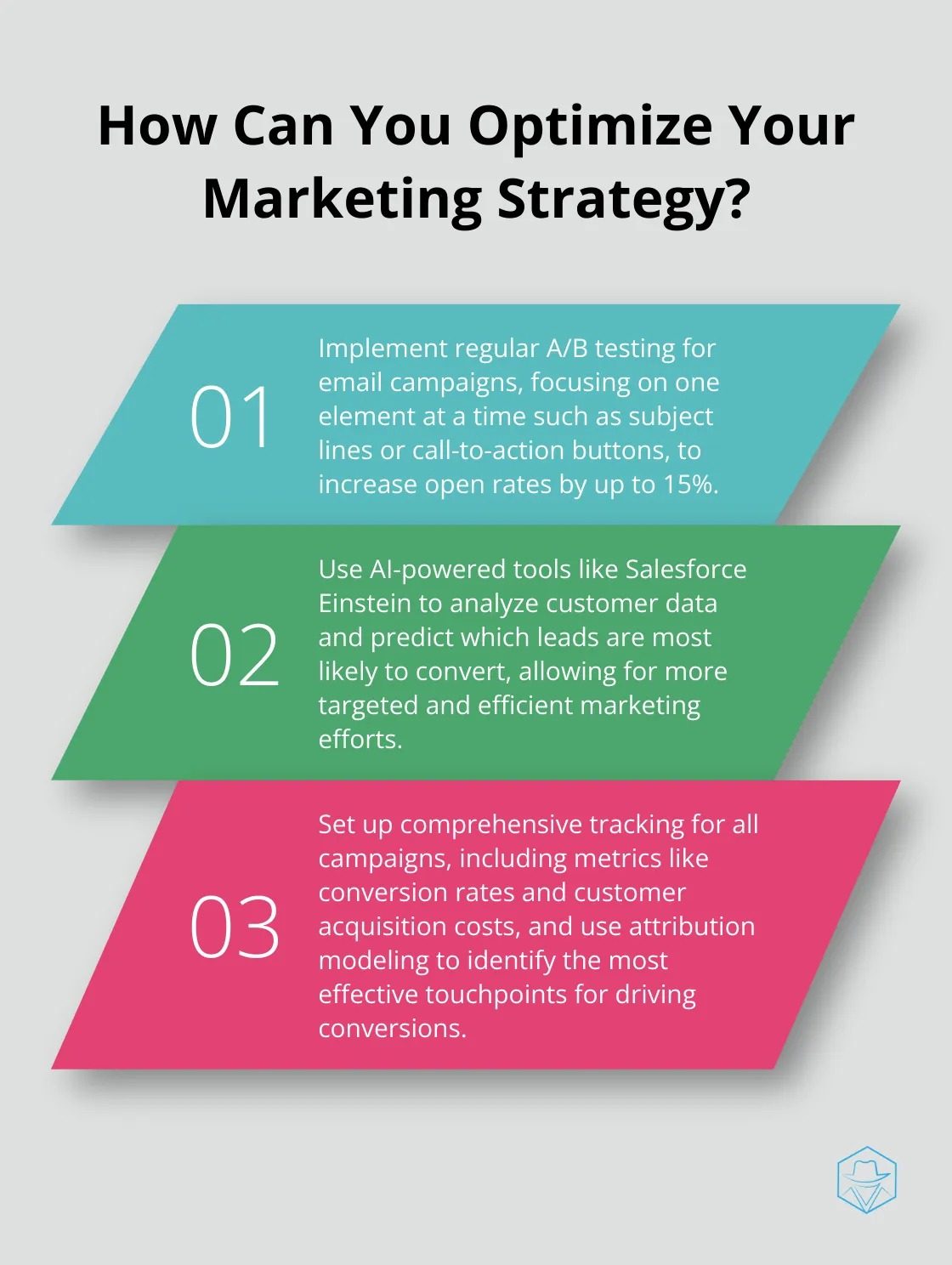Becoming a Successful Marketing Automation Strategist

At Drop Cowboy, we’ve seen firsthand how marketing automation can transform businesses. The role of a marketing automation strategist has become increasingly vital in today’s digital landscape.
This blog post will guide you through the essential skills, strategies, and best practices needed to excel in this dynamic field. Whether you’re just starting out or looking to enhance your existing skills, we’ll provide actionable insights to help you become a successful marketing automation strategist.
What Skills Do Marketing Automation Strategists Need?
Marketing automation strategists require a unique blend of analytical, technical, and creative skills to excel in their roles. Successful strategists possess a deep understanding of data analysis, customer behavior, and marketing technologies.
Mastering Data Analysis and Customer Insights
The foundation of effective marketing automation lies in data. Strategists must interpret complex datasets to uncover actionable insights. This involves looking beyond numbers to understand the story behind them. Analysis of customer interaction data can reveal patterns in buying behavior, allowing for more targeted campaigns.

A study by Forrester Research found that companies excelling at data-driven marketing are three times more likely to achieve competitive advantage in customer loyalty (underscoring the importance of data literacy in marketing automation).
Navigating Marketing Automation Platforms
Technical proficiency in marketing automation platforms is non-negotiable. Strategists should feel comfortable with popular tools like HubSpot, Marketo, or Salesforce Marketing Cloud. However, it’s not just about knowing how to use these platforms; it’s about leveraging their full potential to create sophisticated, multi-touch campaigns.
Crafting Cross-Channel Campaigns
Modern consumers interact with brands across multiple channels. A skilled marketing automation strategist must create cohesive experiences across email, social media, SMS, and other platforms. This requires a deep understanding of how different channels work together and how to maintain a consistent brand voice across all touchpoints.
According to a report by Omnisend, marketing campaigns using three or more channels earned a 287% higher purchase rate than single-channel campaigns (highlighting the importance of cross-channel expertise in driving conversions).
Perfecting Lead Scoring and Nurturing
Identifying high-quality leads and guiding them through the sales funnel is a critical skill for marketing automation strategists. This involves setting up sophisticated lead scoring models based on demographic information, behavioral data, and engagement metrics.
Effective lead nurturing goes hand-in-hand with scoring. Strategists must create content and workflows that address the needs of leads at different stages of the buyer’s journey. A study by Annuitas Group found that nurtured leads make 47% larger purchases than non-nurtured leads (emphasizing the value of this skill).
The next chapter will explore how to develop a comprehensive marketing automation strategy, building on these essential skills.
How to Build a Winning Marketing Automation Strategy
Set Clear and Measurable Goals
The foundation of a successful marketing automation strategy lies in setting specific, measurable objectives. Define clear KPIs for your efforts, such as increasing lead generation by 25% or improving email open rates by 15%. A study by Ascend2 revealed that 43% of marketers prioritize optimizing overall strategy as their top goal for enhancing marketing automation. These benchmarks will help you measure success and identify areas for improvement.
Segment Your Audience Effectively
Effective segmentation forms the backbone of any successful marketing automation strategy. Analyze your customer data to create detailed buyer personas. Consider demographics, behavior patterns, and preferences. A Salesforce report indicates that 52% of consumers expect personalized offers (highlighting the importance of tailored marketing). Use this information to create targeted campaigns that resonate with each segment.
Create Compelling Content for Each Stage
After segmenting your audience, focus on developing content that addresses the specific needs and pain points of each group. Map out the buyer’s journey for each segment and create content that speaks to their concerns at every stage. This approach ensures that your messaging remains relevant and engaging throughout the customer lifecycle.
Implement Smart Automation
Set up triggered campaigns and workflows that respond to specific customer actions. For example, create an automated email series for new subscribers or a re-engagement campaign for inactive customers. Epsilon reports that triggered emails have a 70.5% higher open rate compared to traditional email marketing. The key is to use automation to enhance the customer experience without making it feel impersonal or robotic.
Integrate Your Marketing Stack
Ensure your marketing automation platform seamlessly integrates with your CRM and other tools. This integration provides a comprehensive view of your customers, enabling more informed decision-making and personalized marketing efforts. Surprisingly, an Ascend2 study found that only 18% of B2B marketers use marketing automation integrated with a Customer Data Platform (CDP). By taking this step, you’ll gain a competitive edge and create more targeted, effective campaigns.

The next chapter will explore best practices for optimizing your marketing automation campaigns, building on the foundation we’ve established here.
How to Supercharge Your Marketing Automation Campaigns
Leverage A/B Testing for Continuous Improvement
A/B testing is a powerful tool for campaign refinement. Test one element at a time – subject lines, email content, or call-to-action buttons. For example, testing two different subject lines for an email campaign can lead to a significant increase in open rates (up to 15% in some cases). Make A/B testing a regular practice to improve your campaigns consistently.
Use AI for Predictive Analytics
Artificial Intelligence transforms marketing automation. AI-powered tools analyze vast amounts of data and predict customer behavior. Platforms like Salesforce Einstein forecast which leads are most likely to convert, allowing you to prioritize your efforts. A Forrester study found that AI-driven personalization can deliver 5 to 15 times the ROI on marketing spend (highlighting the potential impact on campaign effectiveness).
Maintain Data Quality and Compliance
Your marketing automation depends on high-quality data. Implement regular data cleansing processes to maintain accuracy. Remove duplicates, update outdated information, and validate email addresses. A study by Validity estimates that organizations believe 32% of their data is inaccurate. Improving data quality enhances campaign performance and prevents resource waste on invalid contacts.

Compliance is equally important. Ensure your automation practices adhere to data protection laws like GDPR and CCPA. Implement double opt-in processes for email subscriptions and provide clear unsubscribe options. Non-compliance can result in hefty fines and damage your brand reputation.
Balance Automation with Personalization
Automation streamlines processes, but maintaining a human touch is essential. Use dynamic content to personalize messages based on user data and behavior. Include the recipient’s name, company, or recent interactions with your brand in your communications. An Epsilon study found that 80% of consumers are more likely to make a purchase when brands offer personalized experiences.
However, avoid overdoing personalization. Overly personalized messages can sometimes appear intrusive. Find the right balance where automation enhances rather than replaces genuine human interaction.
Track and Report ROI Meticulously
To justify your marketing automation investments, demonstrate clear ROI. Set up comprehensive tracking for all your campaigns. Monitor metrics like conversion rates, customer acquisition costs, and lifetime value. Use attribution modeling to understand which touchpoints drive conversions most effectively.
Regular reporting helps you identify what works and what needs improvement, allowing you to allocate resources more effectively. This approach enables you to create high-performing marketing automation campaigns that drive real business results.
Final Thoughts
Marketing automation strategists need a unique blend of skills, strategies, and best practices to excel. They must master data analysis, navigate complex platforms, craft cross-channel campaigns, and perfect lead scoring techniques. Successful strategists set clear goals, segment audiences effectively, create compelling content, and implement smart automation workflows.

Continuous testing, AI-powered analytics, data quality maintenance, and personalization are key practices that distinguish top-performing marketing automation strategists. The field evolves rapidly, so staying updated with industry trends is essential for maintaining a competitive edge. Applying these concepts in real-world scenarios will help you learn from both successes and failures.
Drop Cowboy offers a powerful platform that combines ringless voicemail, SMS integration, and AI-powered voice cloning to enhance your marketing automation capabilities. These features can boost your efforts, allowing for more personalized and engaging customer interactions. The journey to become a successful marketing automation strategist requires ongoing skill development and adaptation to new technologies.
blog-dropcowboy-com
Related posts

April 4, 2025
Real-World Example of Marketing Automation in Action
Explore an example of marketing automation that boosts efficiency and results. Learn how successful companies implement automation in their strategies.

March 13, 2025
Voicemail drops
Explore how voicemail drops can enhance your communication strategy and improve engagement with tips from industry experts.

April 25, 2025
Multi-Channel Marketing Automation: Boost Engagement
Boost engagement with multi-channel marketing automation. Discover strategies to enhance customer interaction and improve conversion rates.

March 20, 2025
Zoho Marketing Automation: Features and Advantages
Explore Zoho Marketing Automation features and benefits to streamline your campaigns and boost engagement effectively.

April 24, 2025
Salesforce Marketing Automation: Boosting Efficiency
Boost efficiency with Salesforce marketing automation. Streamline workflows, increase ROI, and enhance customer engagement in one centralized platform.

March 3, 2025
Comparing Top Ringless Voicemail Providers
Explore top ringless voicemail providers, compare features, pricing, and user reviews to find the best fit for your communication needs.